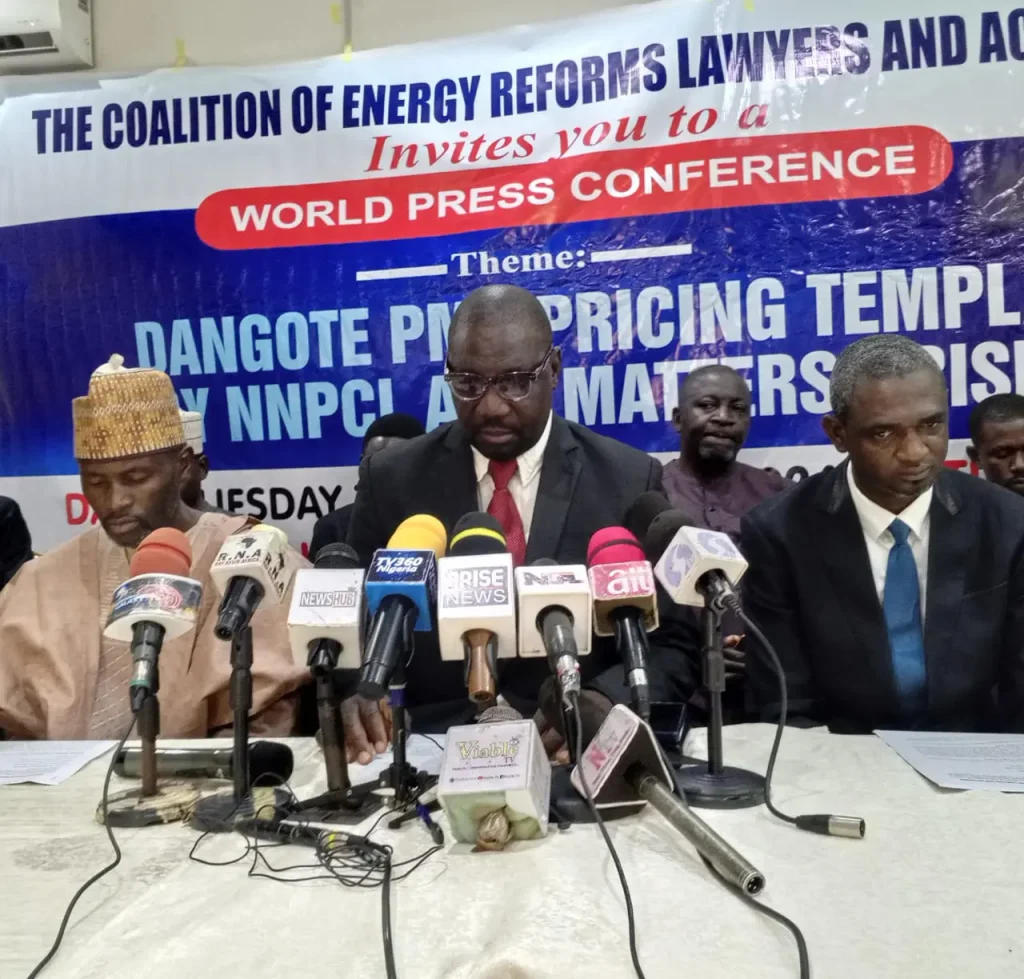CurrentReport Blog The Coalition of Energy Reforms Lawyers and Activists (CERLA) has accused the Nigerian National Petroleum Company Limited (NNPCL) of attempting to undermine local refineries, including the newly operational Dangote Refinery. During a press conference in Abuja on Tuesday, CERLA alleged that the NNPCL is engaging in non-transparent practices concerning its dealings with the Dangote Refinery, particularly around the pricing of Premium Motor Spirit (PMS).
This accusation follows confusion over the price of PMS purchased by the NNPCL from the Dangote Refinery. The NNPCL previously claimed it had loaded over 70 trucks of PMS at a price of N898 per liter, but Dangote Group’s spokesperson, Anthony Chiejina, refuted this, stating that the product was sold in dollars at a lower price than what the NNPCL reported.
CERLA’s convener, Okwa Dan, alleged that the NNPCL’s actions are aimed at “frustrating local refineries and perpetuating fuel subsidy scams.” He suggested that NNPCL’s claims regarding the higher price of PMS from Dangote Refinery are part of a broader strategy to make imported fuel appear cheaper than locally produced fuel.
“This is so because the NNPCL is a beneficiary of the fuel subsidy scam that has impoverished the Nigerian people for decades,” Dan said. He further accused the NNPCL of deliberately obstructing the operations of local refineries in order to maintain control over the importation of PMS, which has long been plagued by allegations of corruption and inefficiency.
Dan warned that if the NNPCL continues with its current approach, CERLA may pursue legal action against both the NNPCL and the federal government. He emphasized the need for greater transparency and accountability within the NNPCL, calling the lack of openness the “elephant in the room.”
The ongoing dispute has raised concerns about the future of Nigeria’s energy sector and the potential impact on fuel prices, local production, and the economy.












